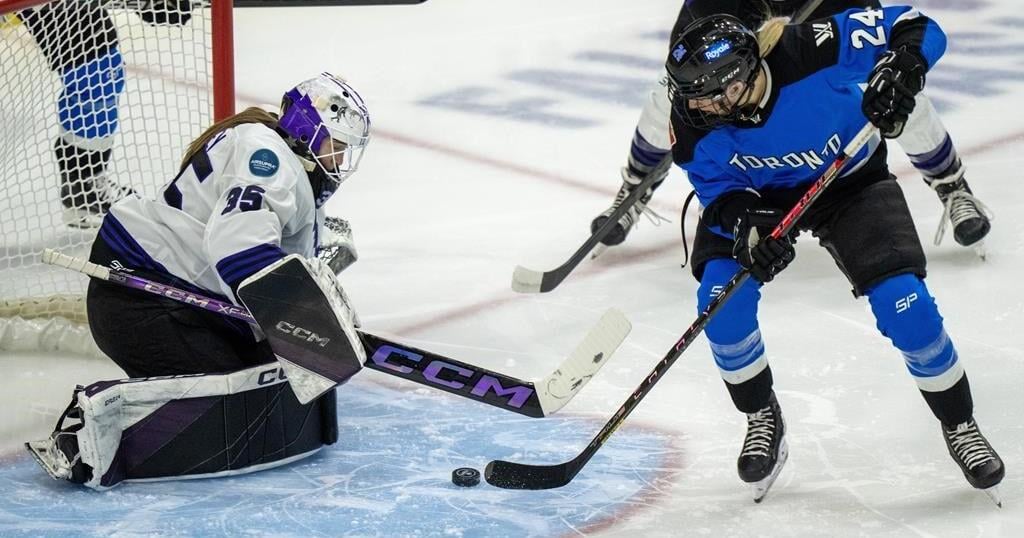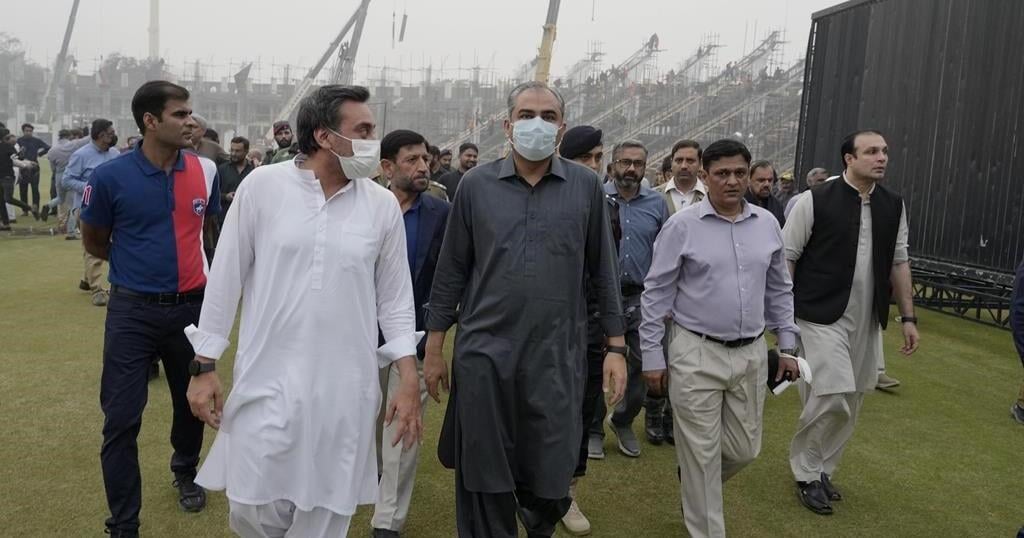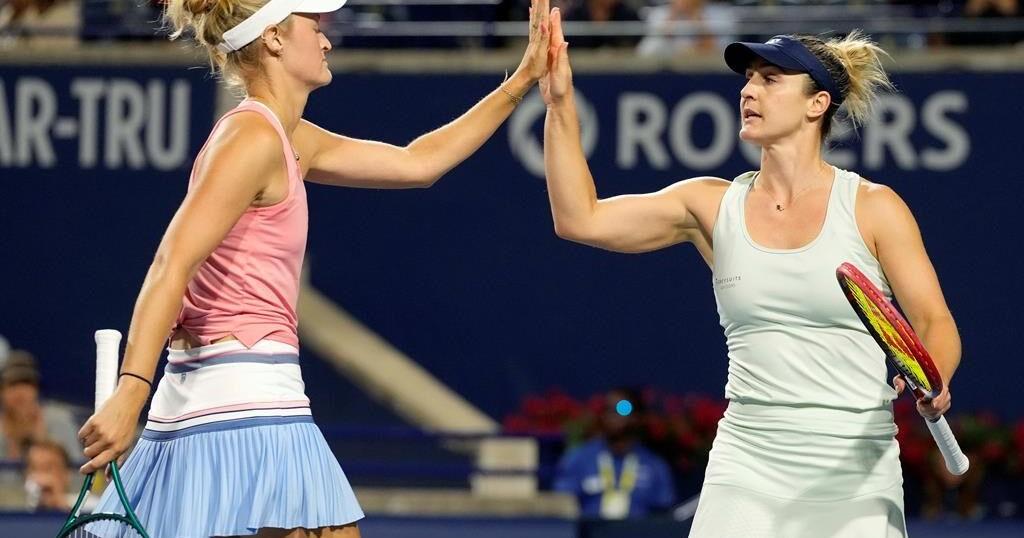A lot of people became basketball fans during the Toronto Raptors’ stirring run to the NBA title last year. If you’re one of them, you’re likely missing hoops quite a bit right now. Netflix is about to start filling some of that void, and whether you’re a long-time basketball junkie, or a reality show fan, there’s a lot to be excited about. That’s because more than 20 years after behind-the-scenes footage was shot of Michael Jordan’s final season and championship with the Chicago Bulls, the resulting documentary is finally seeing the light of day.
A co-production of ESPN Films and Netflix, the 10-part The Last Dance was moved up from a planned June unveiling to this Sunday in the U.S. and Monday in Canada. Episodes will hit Netflix in this country two at a time, starting on Monday, until the final two go live on May 18.
[embedded content]
The series begins with a shot from behind of a seated Jordan gazing out into the horizon as a crawl sets up where things stood at at the time, Star Wars style. To recap: Jordan’s Bulls had won five titles in the last seven seasons and were preparing to try to three-peat for the second time, but everyone was wondering if this would be it for one of the greatest runs in sporting history because of various hard feelings in the front office and amongst some of the players owing primarily to jealousy and monetary disputes.
Interspersing clips of Jordan’s franchise-saving arrival in Chicago in 1984 with the man himself, fittingly addressing the United Center crowd 23 years later with five NBA championship trophies set out in front of him, The Last Dance gets rolling, immediately pulling viewers in. It never stops doing that, at least over the first four episodes that Postmedia was given to screen.
At first it’s a bit jarring to see a young, humble, low-key Jordan with hair vs. all of the intersecting later shots of the most dominant player in NBA history doing his thing, along with the reflections of the current business titan, now in his late fifties.
Unlike the VHS tapes and DVDs of the 1980s and 90s that built up the Jordan legend, putting him in a class, as one person interviewed in the doc says, only with the likes of Babe Ruth and Muhammad Ali, this work is not mere hagiography. Jordan is presented warts and all. From cruelly ripping long-time Bulls general manager Jerry Krause — the driving force of the ill-conceived desire to tear apart the team — to his face, to being relentless with his teammates during tough stretches, there’s a reason Jordan told director Jason Hehir (Andre the Giant, The Fab Five, The ’85 Bears) that people will think he’s “a horrible guy” and won’t understand why he acted the way he did when they watch the film. “My innate personality is to win at all costs. If I have to do it myself, (I will) do it … It drives me insane when I can’t,” Jordan says years later in trying to explain his mindset and actions. His mother, Deloris, and brother, Ronnie, also provide some insight into where he got those traits from, based on his upbringing.
And that’s the true triumph of the series. Incredibly, for once, Jordan, one of the most famous and scrutinized people on the planet for over 35 years now, is presented as human. When can you ever recall Jordan being revealed as such? Not just as a myth, but as a living, breathing, person. It’s impossible not to chuckle when Jordan is handed a tablet showing a video of his mother reading a letter a teenaged Jordan wrote to her while at college at North Carolina. In it, Jordan, who is now a billionaire and owns the NBA’s Charlotte Hornets, says he’s down to his last $20, so could use a handout, along with some stamps from his parents. “And sorry about the phone bill,” Jordan adds. In another moment Jordan laughs and tells a story when asked about the cocaine problems of some of his rookie season teammates.
While sports provides much of the background of the journey, there’s so much more here. There are Survivor and Big Brother elements owing to the rare, up close and personal footage, which was simply not done at the time. Jordan commissioned the crew when it became clear that 1997-98 would be the end of a remarkable era and head coach Phil Jackson and ownership were on board. What they revealed was the fractious nature of the organization at the time. All of the palace intrigue is there. Bulls owner Jerry Reinsdorf tries to explain the still baffling reasoning behind tearing down the iconic group and starting a rebuild, reminding that the Bulls nearly made the mistake of doing so a year earlier, following the fifth title. It’s something to see Jordan openly challenging management and ownership while up on a dais right after winning number five. That same night, Jordan’s running mate Scottie Pippen, also featured heavily throughout, particularly in Episode 2, holds nothing back in talking about being underpaid and disrespected by the Bulls. Jordan also is there saying he won’t play for another coach if Jackson is pushed out by Krause, which basically forced ownership’s hand in giving Jackson one more year. Jackson called that final season “The Last Dance.”
Jordan talked about how angry the idea of not trying to win again made him.
“We’re entitled to defend what we have until we lose it.” Then he scoffed at the idea of rebuilding and buried the Chicago Cubs by saying they’d been rebuilding for 42 years, took a shot at ownership by saying they should have respect for the people who made them profitable — an open response to Krause saying organizations win championships, not players — which got under Jordan’s skin. Krause would unsuccessfully try to clear up the controversial quote, by saying he said players and coaches alone don’t win championships.
“We felt like we were the greatest team ever,” Pippen says at one point, making it clear he still doesn’t understand why some were so eager to move on.
And, oh yes, there’s plenty of Dennis Rodman, the most unique athlete we’ve ever seen, as well as thoughts from the likes of Magic Johnson, Isiah Thomas, James Worthy, Jordan’s Canadian Bulls teammate Bill Wennington (who provides strong insight throughout), former Raptor and close Jordan pal Charles Oakley (who is memorably shown roughhousing with an overly confident rookie Pippen). Bill Clinton, a fellow Arkansas native, even appears to discuss seeing Pippen play for the first time when Clinton was still governor of that state.
The late David Stern and Krause and even Chicago native Barack Obama, who talks about not being able to afford a ticket in Jordan’s early years, when the hoops icon had saved the franchise and nearly tripled their attendance, all provide some historical context.
Jordan can’t save the world, but thanks to his foresight in hiring the camera crew and the work of so many in the ensuing decades to make The Last Dance happen, he and his friends and foes can at least brighten up our days a little bit for the next few weeks.


























